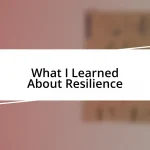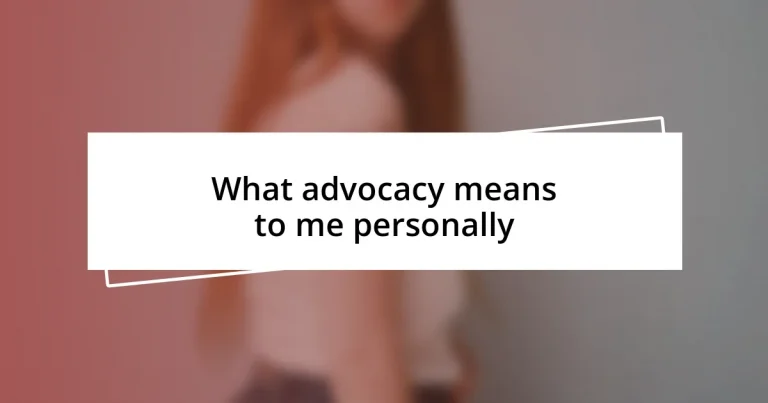Key takeaways:
- Personal advocacy involves standing up for one’s beliefs and those of others, emphasizing the importance of authenticity and courage.
- Personal values are foundational in advocacy, providing authenticity, consistency, connection, and influence.
- Engaging in advocacy helps shape personal identity, revealing strengths and fostering a deeper connection to causes.
- Building a diverse support network enhances advocacy efforts, offering invaluable guidance and enriching perspectives for effective action.
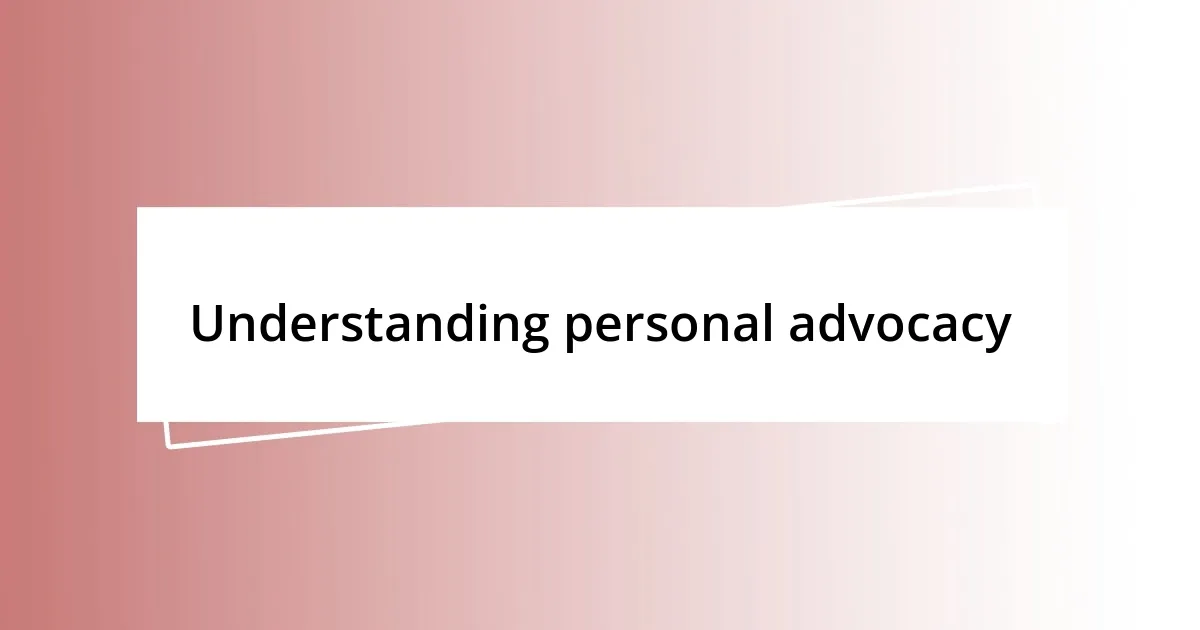
Understanding personal advocacy
Personal advocacy, to me, means standing up for my beliefs and the needs of those around me. I vividly remember a time when a close friend was struggling to get support for a health issue. I felt compelled to speak on their behalf, not just because I cared, but because I believed everyone deserves a voice. Have you ever found yourself in a situation where you felt that urgency to advocate for someone else?
When I think about the essence of personal advocacy, it’s about knowing your worth and the value your voice can add. I recall feeling anxious before a meeting at work where I needed to present an idea I was passionate about. My heart raced, but I knew that if I didn’t speak up, an opportunity would vanish. That moment taught me that personal advocacy isn’t just about the loudest voice in the room; it’s about authenticity and courage.
Understanding personal advocacy also means embracing the responsibility that comes with it. I once took part in a community event aimed at raising awareness about mental health. Witnessing the shift in people’s attitudes, simply because I dared to share my story, was transformative. It made me realize that advocacy isn’t just for the brave; it’s for anyone willing to take that first step. What steps are you willing to take for those who feel unheard?
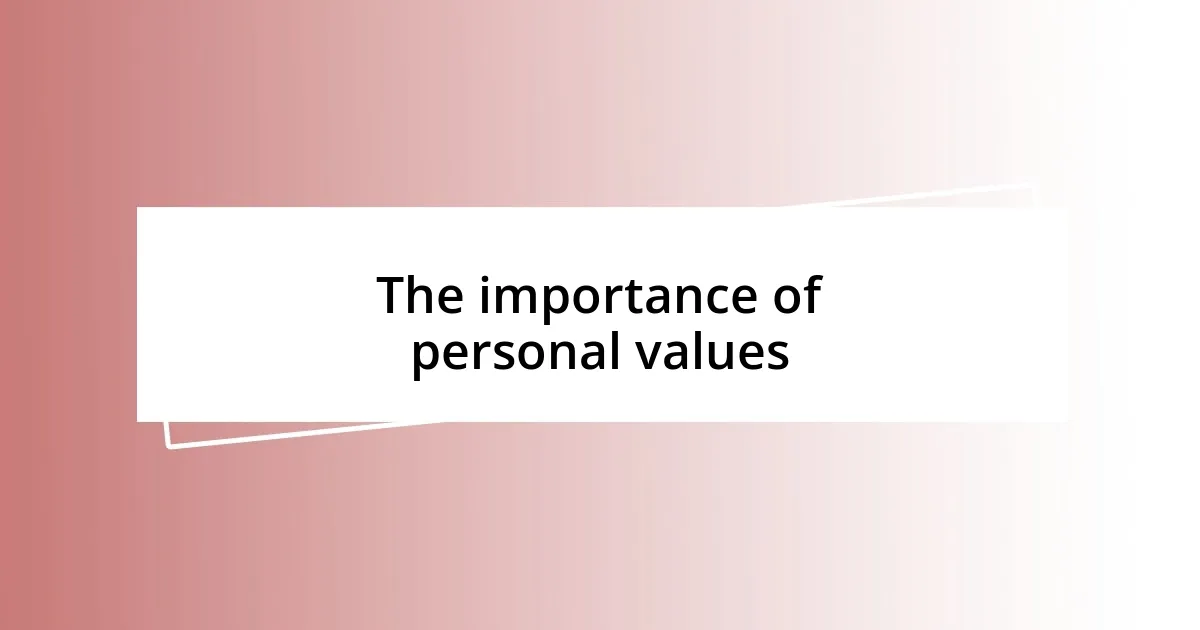
The importance of personal values
Personal values form the bedrock of my advocacy journey. They guide my actions and decisions, ensuring that I remain true to myself while fighting for what I believe in. I remember once being faced with a tough choice at a volunteer meeting. A group discussion turned heated, and I felt the weight of my cultural background and upbringing pressing on me. I stood up, drawing on my values of compassion and integrity, to mediate between differing opinions. That experience reinforced just how vital it is to be grounded in personal principles, especially when advocating for others.
Here are some reasons personal values matter in advocacy:
- Authenticity: Staying true to my values allows me to advocate genuinely, fostering trust and respect.
- Consistency: Personal values provide a steady compass during tough decisions, helping me remain focused on the cause.
- Connection: Values often resonate with others, creating bonds and building supportive communities.
- Courage: Holding strong to my beliefs gives me the confidence to speak up, even in challenging situations.
- Influence: My values help shape my message, making it more impactful to those who hear it.
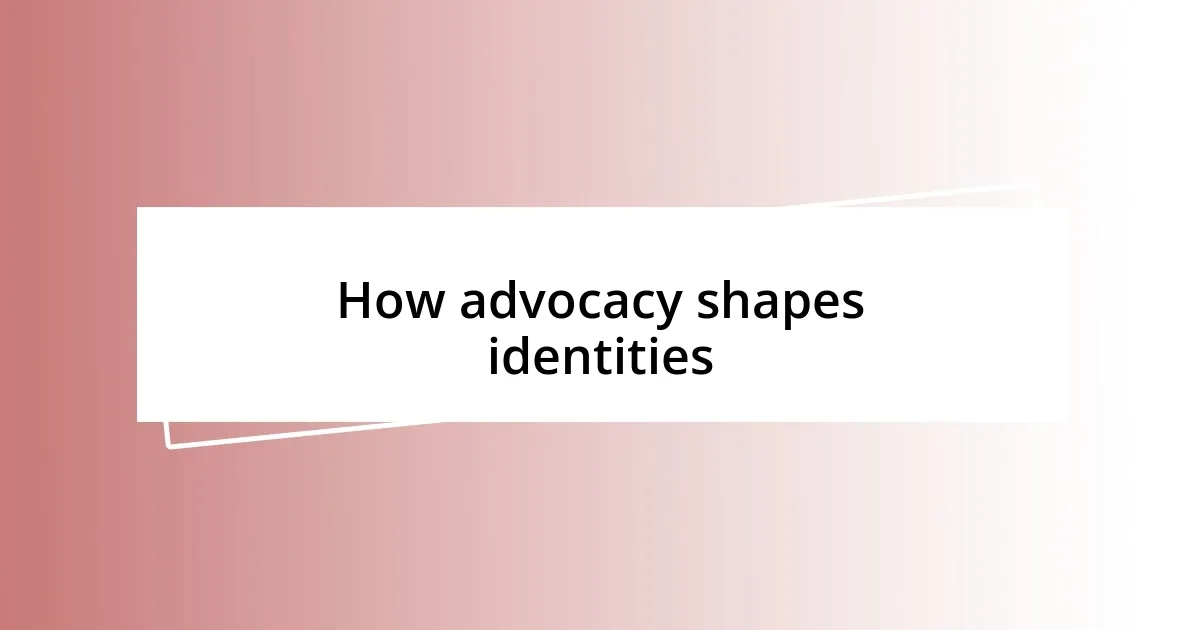
How advocacy shapes identities
Advocacy profoundly shapes our identities by intertwining them with the causes we care about. I often find that the more I advocate for a cause, the more I align my personal identity with it. For instance, during a community project aimed at promoting environmental sustainability, I realized how advocating for the planet became a core part of who I am. Each action I took—like organizing clean-up days—strengthened my connection to environmentalism, transforming it from a passing interest into a passion that defines me.
Through advocating, we also discover our own strengths and values. I remember speaking to a group of students about the importance of mental health. Initially, I was nervous about sharing my experiences, but as I spoke, I felt a wave of empowerment. It became clear to me that my journey through mental health challenges was not just a personal narrative; it was a beacon for others. This realization deepened my identity, as I embraced the role of a mental health advocate, realizing that my story could foster connection and understanding among others.
Advocacy offers a platform to explore who we are and what we stand for. When I joined a local advocacy group focused on racial justice, I was challenged to confront my own biases and preconceptions. Participating in discussions and community outreach revealed not only my commitment to social justice but also the aspects of my identity that I wanted to strengthen. Thus, advocacy has the power to serve as both a mirror and a map, reflecting our beliefs while guiding us toward a more defined self-identity.
| Advocacy Impact | Identity Shaping |
|---|---|
| Alignment with Causes | Personal Transformation |
| Empowerment | Connection to Community |
| Reflection | Growth in Beliefs |
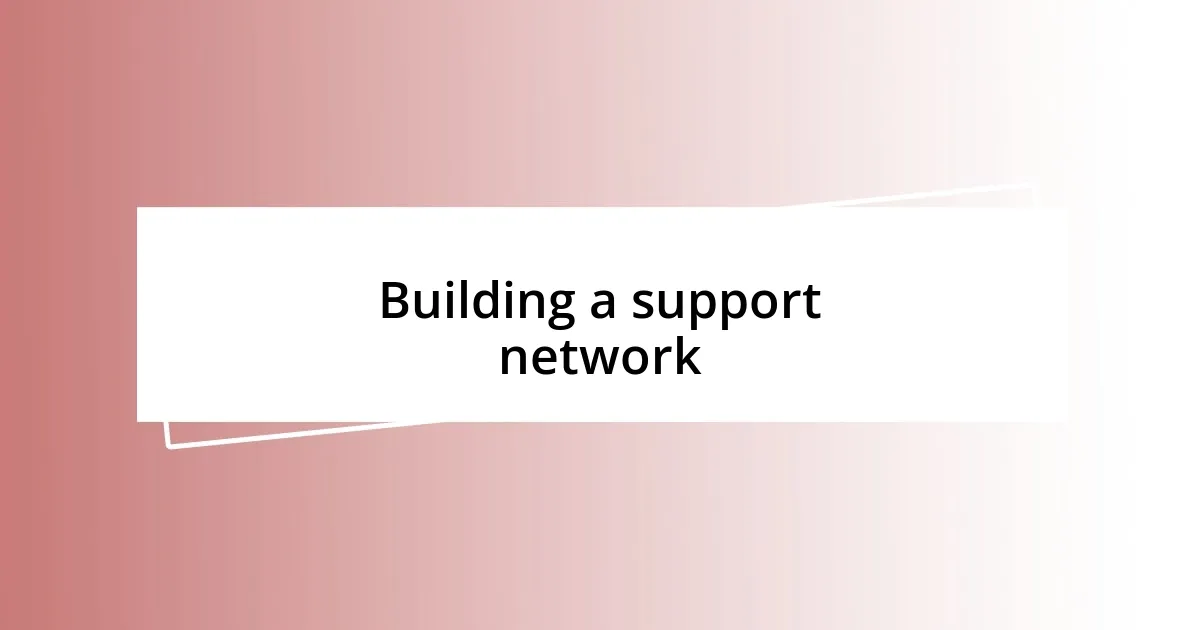
Building a support network
Building a support network has been crucial in my advocacy journey. I recall attending a conference where I met fellow advocates who shared similar experiences and challenges. The sense of camaraderie we developed over lunch inspired me to actively pursue a support network, reminding me just how powerful it is to have people who understand your mission and struggles.
I’ve learned that building a network goes beyond just collecting contacts; it’s about nurturing relationships. When I first reached out to a mentor in my area of advocacy, I felt vulnerable sharing my aspirations. However, their encouragement transformed my hesitance into determination, demonstrating how meaningful connections provide invaluable guidance and support.
One of the most rewarding aspects of my support network has been the diversity within it. Each person brings their unique perspective, enriching my understanding of advocacy. For instance, collaborating with individuals from different backgrounds has encouraged me to rethink my approaches and expand my horizons, ultimately making me a more effective advocate. Isn’t it fascinating how these rich, varied perspectives can fuel our growth? Building a network, I’ve realized, is not just beneficial; it’s essential for creating lasting change.
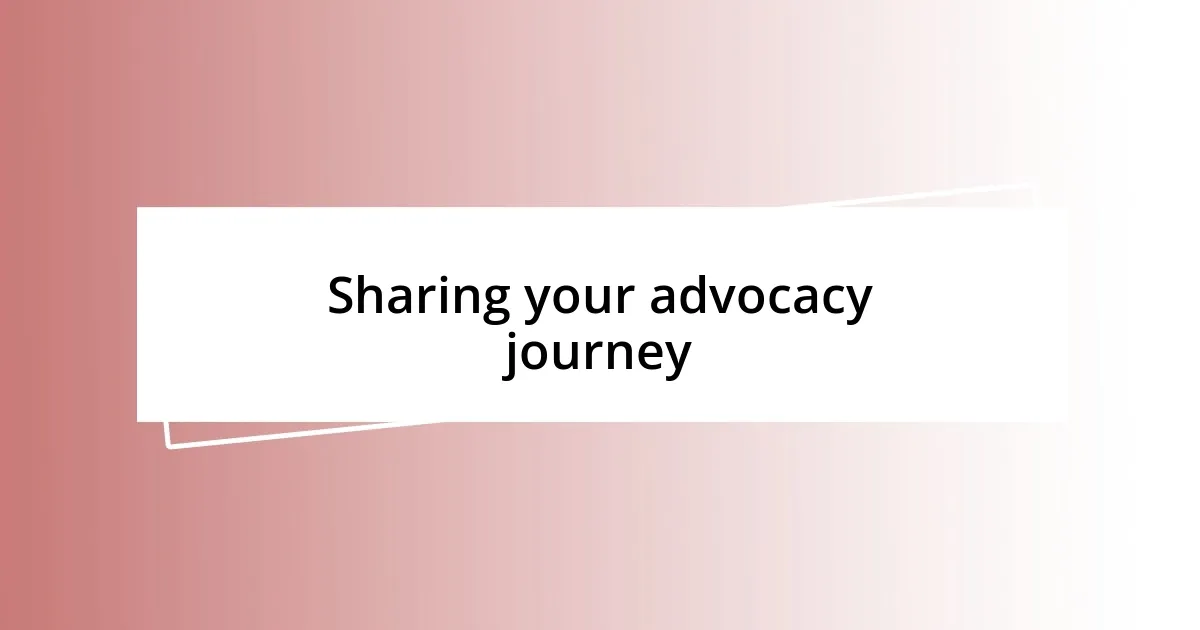
Sharing your advocacy journey
Sharing my advocacy journey has always felt deeply personal, almost like mapping out significant life chapters. I can still vividly remember the day I decided to share my story about advocating for disability rights. Standing in front of a crowd, I felt a mix of excitement and trepidation. Yet, when I opened up about my brother’s challenges, I could see the audience connect—nodding, tears in their eyes. That moment reaffirmed my belief that sharing our journeys can ignite change and inspire others to join the cause. Isn’t it remarkable how vulnerability can be a catalyst for deeper conversations?
In another instance, I created a blog dedicated to mental health advocacy. It started as a simple online diary, but as I began to share my struggles, I was blown away by the responses. Readers reached out to tell me how my words resonated with their experiences. This feedback fueled my belief that advocacy isn’t just about raising awareness; it’s also about fostering community and solidarity. Whenever I ponder about the impact of sharing, I realize it’s a powerful bridge that connects us, illustrating that we aren’t alone in our struggles.
Recently, I attended an advocacy workshop where we were encouraged to share our personal stories in small groups. I hesitated at first, but once I found my voice, I was met with understanding and encouragement. Listening to others’ journeys made me feel more validated in my own experiences. These exchanges have taught me something vital: sharing is not just about storytelling; it’s a way to cultivate empathy and collective action. Have you ever considered how your own story could inspire change in someone else? Trust me, the impact can be profound.
